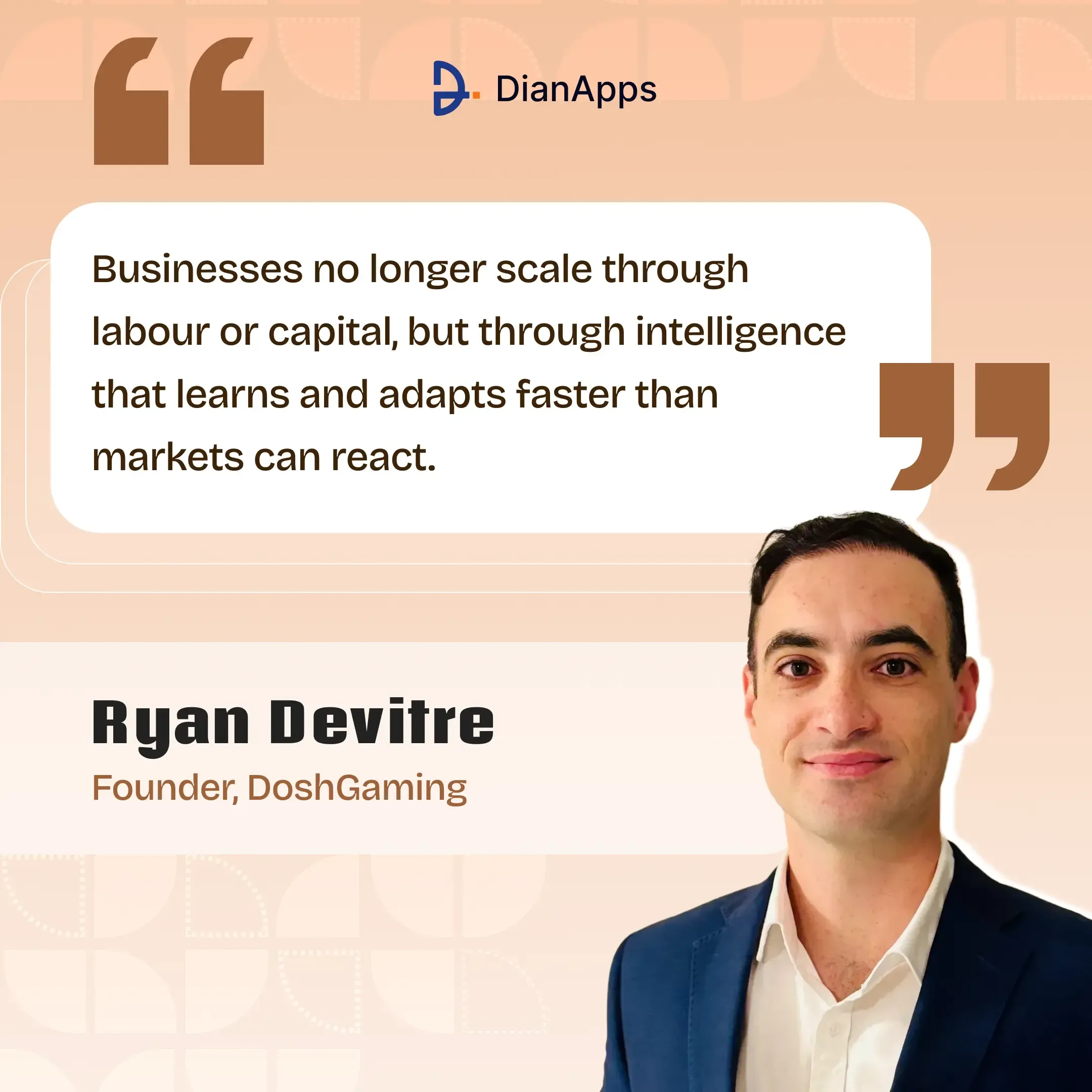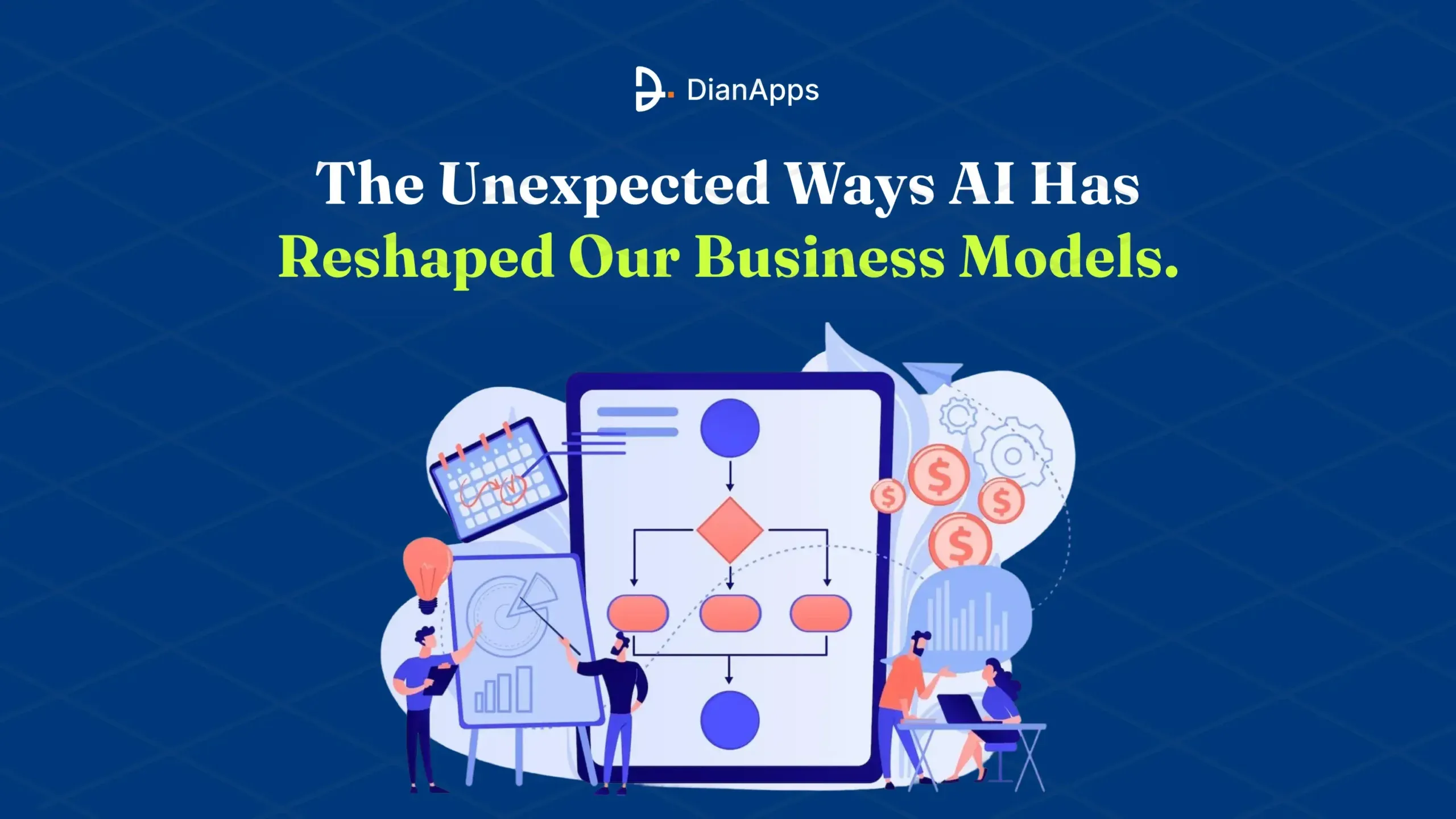For years, businesses measured growth by how much they could produce, sell, or expand. The logic was simple: more people, more capital, more output. But the rise of Artificial Intelligence has flipped that logic on its head.
Today, companies aren’t scaling by adding more; they’re scaling by learning more. Data has quietly replaced products as the new engine of value creation, and this shift has fundamentally changed what it means to “grow” a business.
As Ryan Jehangir Devitre, Founder & CEO of Dosh Gaming, perfectly puts it:
“AI hasn’t just automated tasks it’s redefined the very logic of how we create and capture value. The traditional model of linear growth has given way to exponential ecosystems where data, not products, is the primary currency.”
From Production to Prediction
Ryan’s words reflect a truth every modern business is waking up to: AI isn’t just another productivity tool; it’s a new way of thinking.
In the past, businesses scaled through resource factories, manpower, and distribution networks. Now, they scale through intelligence. AI systems don’t just process data; they learn, adapt, and predict. This means the smartest businesses are those that can turn their information loops into living, breathing ecosystems.
At Dosh Gaming, for example, insights from user behavior don’t just inform marketing campaigns; they reshape the entire product strategy. This cycle of learning and applying allows the company to react faster than the market itself.
The Shift from Ownership to Orchestration
One of Ryan’s most powerful observations is about orchestrating the ability to blend human creativity with machine capability.
“In this new paradigm, competitive advantage comes not from ownership but from orchestration how effectively you integrate human creativity with machine capability.”
This is where AI truly changes the game. The leaders of tomorrow won’t necessarily be those who own the most assets, but those who can connect the right people, data, and algorithms in a way that creates something new.
It’s not about doing things faster; it’s about asking better questions. And those questions often reveal hidden opportunities that traditional business models could never reach.

The Birth of New Economies
We’re now seeing entire micro-economies emerge around intelligence think recommendation systems that power entire industries, or personalization engines that redefine customer loyalty.
Ryan highlights that the most successful companies are those using AI to uncover unseen efficiencies and spark new economies of interaction, ones that didn’t even exist five years ago.
These aren’t incremental changes; they’re foundational. They reshape how value is created, shared, and sustained.
Final Thoughts
AI hasn’t just optimized business models; it has reinvented them. What used to be linear is now dynamic. What used to depend on ownership now thrives on orchestration.
Ryan Devitre’s perspective reminds us that the true power of AI lies not in replacing human intelligence but in amplifying it.
Because in this new era, growth doesn’t come from doing more.
It comes from learning faster, thinking deeper, and building smarter.










Leave a Comment
Your email address will not be published. Required fields are marked *